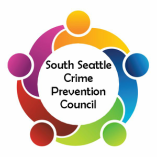Computer Virus Scams
This troubling fraud begins with an unsolicited phone call to a computer-using consumer. The fraudster/scammer, identifying her/himself as a Microsoft or Windows technical support person or a representative from your internet service provider, informs you your computer is infected with a virus or your computer sends error messages to the service provider. The fraudster attempts to convince you to grant remote access to your computer and, should you do so, this person will run a script on your computer which displays a list of viruses. You are then told to purchase anti-virus software which will remove these viruses; further, the fraudulent technician states that simply downloading the alleged anti-virus program will eradicate problems. Do not allow yourself to be talked into this: downloading this unknown "fix" from an this strange "technician" not only ensures thieves have remote access to your computer, additionally, data stored by your computer--bank/financial records, email passwords, etc.--may be hacked, stolen. Computer virus scams result in lost money, lost data, and stress--the "protection" purchased in such transactions often result in greater vulnerabilities.
Prevent Computer Virus Scams by
Prevent Computer Virus Scams by
- Protecting your computer with anti-virus software and a firewall you've purchased from a reputable source
- Updating protections for your computer--ensure updates are legitimate and you've a sense of what will be updated
- Asking trusted others/doing research on products before downloading or purchase
- Taking time to find out/understand what needs to be done if your computer has issues--resist pressure to act hastily
- Hanging up on unsolicited calls you receive from unknown parties about viruses which your computer may have
- Never granting a stranger remote access to your computer
- Never giving a stranger credit card/bank card numbers or any other personal and financial information
- Never allow someone to send a messenger to pick up money from your home--no legitimate business does this
- Never pay in advance always wait until items are delivered or mailed to you
- Contacting your financial institution(s) and the police immediately if you suspect you're the victim of fraud
- Trusting your instincts: Seek advice/help for computer and software problems from sources you contact yourself
